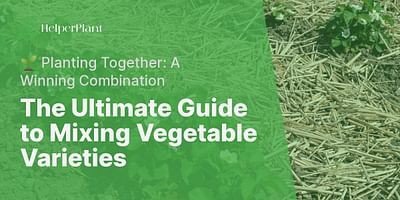Terrence Beatty is a renowned horticulturist and prolific author with a focus on companion planting techniques. His insightful books on the topic have garnered wide acclaim, and he is a regular presence at prominent gardening seminars. His expertise is a guiding light for those navigating the world of mutually beneficial plant relationships.
Absolutely! A home vegetable garden can be a cost-effective and rewarding endeavor. Not only does it provide you with fresh, nutritious produce right at your doorstep, but it can also save you money in the long run. Let me break it down for you.
First and foremost, growing your own vegetables allows you to bypass the high costs associated with store-bought produce. Have you ever noticed how the price of vegetables seems to keep rising? By growing your own, you can significantly reduce your grocery bill and save money in the process. Plus, you have the added benefit of knowing exactly where your food comes from and how it was grown.
Another way a home vegetable garden can save you money is by reducing your reliance on expensive fertilizers and pesticides. By practicing companion planting, you can create a natural balance in your garden, minimizing the need for chemical interventions. Companion planting is the art of strategically planting different crops together to enhance their growth and protect them from pests. For example, planting marigolds alongside tomatoes can help deter harmful insects, reducing the need for chemical sprays. This not only saves you money but also promotes a healthier, more sustainable garden ecosystem.
Additionally, a home vegetable garden can contribute to your overall savings by reducing your trips to the grocery store. How often do you find yourself making multiple trips a week just to pick up a few vegetables? With a well-planned garden, you can have a steady supply of fresh produce right outside your door, eliminating the need for frequent grocery runs. This not only saves you time and effort but also reduces your carbon footprint by cutting down on transportation-related emissions.
Moreover, a home vegetable garden can provide you with a sense of self-sufficiency and empowerment. Instead of relying solely on the market for your food, you have the ability to grow your own and take control of your food supply. This can be particularly valuable during times of economic uncertainty or food shortages.
Lastly, let's not forget the intangible benefits of a home vegetable garden. Gardening can be a therapeutic and stress-relieving activity, allowing you to connect with nature and enjoy the fruits of your labor. It can also be a great way to bond with family and friends, as you share the joy of growing and harvesting your own food together.
So, to answer your question, a home vegetable garden is not only economically worth it but also offers a multitude of other benefits. From saving money on groceries to promoting sustainability and providing a sense of fulfillment, the rewards of growing your own vegetables are truly priceless. Start your garden today and reap the benefits for years to come!















